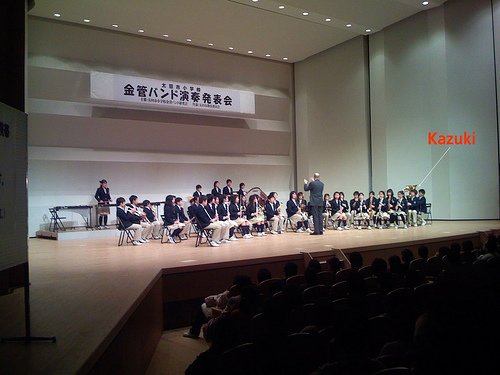One way of approaching an understanding of Japan is through the word kata, which means “form” and describes the many aspects of life in Japan that follow a specific, pre-determined structure which society at large has agreed on ahead of time. Without a doubt, the Japanese are a people who like to follow fixed forms in many aspects of their lives, and it can be amazing how naturally people fall in step in these situations. I was reminded of this a week ago when the brass band that my son performs in at his school participated in a recital along with ten other elementary schools, an event that required everyone to be completely in sync with each other. First, there is a “greeting” speech by the chairman of the organization that put on the event, followed by comments from other high-ranking members. Then the performances came, perfectly executed by each school’s band, as the audience clapped. Finally, the nice lady who was most responsible for making the whole recital come together received the largest bouquet of flowers I’ve seen in my life from her students, which seemed spontaneous but was also part of the overall form of the event. You see this tendency to closely adhere to pre-approved forms in many different settings, from weddings and funerals to the way the average Japanese person interacts with teachers, doctors and anyone else they want to show respect to. Incidentally, Nintendo sells a trivia game for the DS platform here in Japan to help players learn the “common sense” associated with these events and avoid embarrassment — that’s pretty smart.

(You can see my son way in the back with his Bass Clarinet that’s as big as he us)















